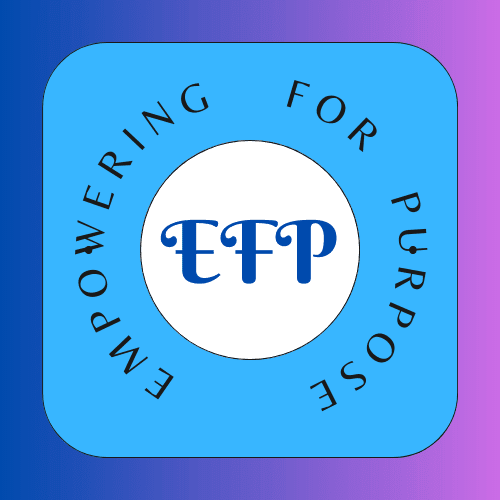The Healing Power of Grief Coaching

Posted on August 30, 2024
Grief is a journey that touches everyone at some point in life. Whether it's the loss of a loved one, a relationship, a job, or even a dream, the pain of loss can be overwhelming and isolating. While time is often said to heal wounds, the path to healing is rarely straightforward. This is where grief coaching can make a profound difference.
What is Grief Coaching?
Grief coaching is a specialized form of life coaching designed to support individuals through the grieving process. Unlike traditional therapy, which may focus on diagnosing and treating mental health conditions, grief coaching is about helping people navigate the emotional, mental, and spiritual challenges that come with loss. It provides a safe space for clients to express their emotions, explore their grief, and find ways to move forward with their lives.
Grief coaching is not about offering quick fixes or pushing clients to "get over" their loss. Instead, it acknowledges the unique and personal nature of grief and helps individuals honor their feelings while gently guiding them toward healing and growth.
The Role of the Grief Coach
A grief coach serves as a compassionate guide through the complex landscape of loss. They offer empathy, understanding, and practical strategies to help clients cope with their grief. The role of a grief coach includes:
- Creating a Safe Space: A grief coach provides a non-judgmental environment where clients can openly share their thoughts and feelings. This space allows for honest exploration of grief without the pressure to conform to societal expectations.
- Empathy and Understanding: Grief coaches are trained to listen deeply and empathetically. They understand that grief is not a linear process and that everyone experiences it differently. Their support is tailored to the individual's needs and pace.
- Guidance and Support: Through conversations, exercises, and personalized strategies, grief coaches help clients process their emotions and work through the various stages of grief. They may also provide tools for managing stress, anxiety, and the physical symptoms of grief.
- Goal Setting and Forward Movement: While honoring the grieving process, a grief coach also helps clients envision a future beyond their loss. This might involve setting small, achievable goals, exploring new interests, or finding ways to reconnect with joy and purpose.
The Benefits of Grief Coaching
Grief coaching offers several key benefits for those navigating loss:
- Personalized Support: Grief coaching is tailored to the individual's unique experience of loss. Whether the grief is fresh or has been lingering for years, coaching meets the client where they are.
- Empowerment: Grief coaching empowers individuals to take an active role in their healing process. It helps them reclaim a sense of control over their lives, even in the face of profound loss.
- Holistic Approach: Grief coaches consider the whole person—mind, body, and spirit. This holistic approach ensures that all aspects of grief are addressed, leading to more comprehensive healing.
- Non-Prescriptive Guidance: Unlike some forms of counseling, grief coaching does not impose a one-size-fits-all approach. Instead, it respects the personal nature of grief and allows clients to find their own path to healing.
The Grief Coaching Process
The process of grief coaching typically involves several stages:
- Initial Assessment: The journey begins with an in-depth conversation to understand the client’s specific experience of loss, their current challenges, and their goals for coaching.
- Exploring Grief: The coach helps the client explore their grief, identifying feelings, thoughts, and behaviors that may be holding them back from healing. This stage often involves deep emotional work and reflection.
- Coping Strategies: The coach introduces coping strategies that the client can use to manage the day-to-day realities of grief. These might include mindfulness practices, journaling, or relaxation techniques.
- Rebuilding Life: As the client begins to process their grief, the coach supports them in rebuilding their life. This could involve setting new goals, finding new sources of meaning, or rekindling a sense of hope for the future.
- Ongoing Support: Grief does not have a set timeline, so ongoing support is often crucial. Many clients continue working with their coach as they transition through different stages of grief, ensuring they have the support they need as they move forward.
Is Grief Coaching Right for You?
Grief coaching is beneficial for anyone struggling with the pain of loss. It’s particularly helpful for those who feel stuck in their grief, unable to move forward, or who are looking for a more proactive and personalized approach to healing. Whether you’re dealing with the loss of a loved one, the end of a significant relationship, or any other form of loss, grief coaching can provide the support and guidance you need to navigate your journey.
In conclusion, grief is one of life’s most challenging experiences, but you don’t have to face it alone. Grief coaching offers a compassionate, personalized approach to healing, helping you honor your loss while also guiding you toward a future filled with hope and possibility. Through the support of a grief coach, you can find your way through the storm and emerge stronger, more resilient, and ready to embrace life once again.
Contact Me
Send a Message
I invite you to reach out if you have any questions or if you would like to learn more about how my services can help you discover and pursue your life purpose. Let's start your journey towards a fulfilling and purposeful life together.
